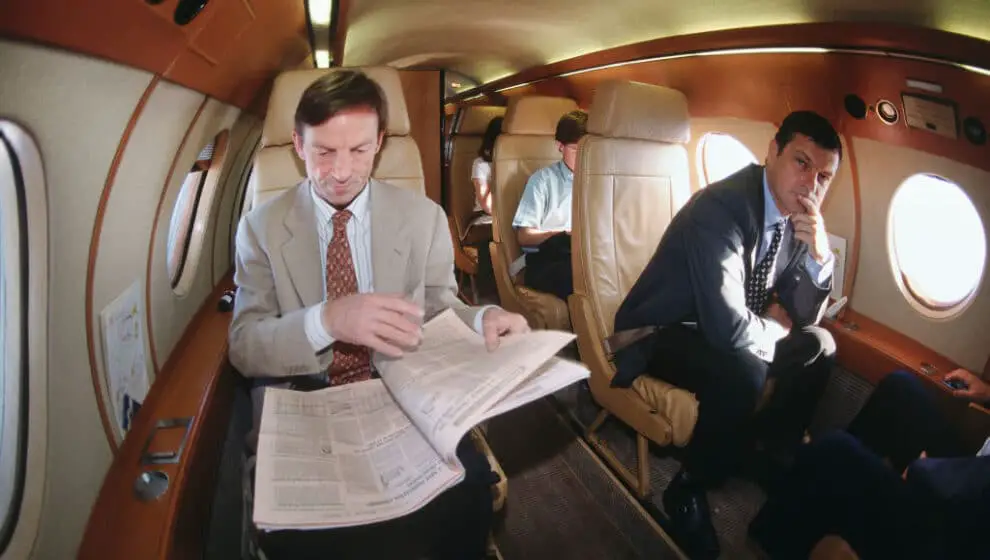Private jets may not be the strain on the environment many consider them to be.
Key details
Private jets receive a fair amount of negative publicity—a few people in a big jet is a large use of fuel per capita.
But one suggestion from a report by Transport & Environment, a 30-year-old non-profit campaigning for cleaner transportation, may have a solution. It aims to reduce aviation greenhouse emissions more effectively than banning the planes would do.
The study suggests that since private jet owners are typically in the wealthiest group of people, the plane owners should help fund innovation in cleaner aviation technology.
The revenue from an innovation tax could finance projects to create greener technologies, including aircraft.
The recommended tax on aircraft is $3,000 for flights departing from Europe. With the additional funding fueling advancement in aircraft, the report then suggests that it would be realistic to require all private aircraft flying less than 1,000 kilometers in Europe to be powered by green alternatives by 2030.
Why it’s news
Private jets have been the recipient of particular vitriol from those looking to reduce overall carbon emissions, but with this tax in place, private planes could be the key to achieving greener transportation.
Companies like Regent Craft are developing seaglider planes powered by electricity that will provide transportation for short flights between coastal cities. United Airlines recently invested in flying taxis, all-electric planes that would transport passengers from one end of a busy city to the other.
Celebrities and billionaires have faced public outcry for their use of private jets to dart from city to city, sometimes when a drive would have been possible. Reality star Kylie Jenner faced public backlash when it was revealed that she took a 17-minute flight on her private jet during the same month the Western U.S. suffered from oppressive heat waves and devastating wildfires.
Surprising statistics
Private jets make up 4% of aviation emissions globally, meaning the plane’s environmental impact is relatively low.
Aviation emissions combined also have a relatively small effect on the environment, making up 2.4% of all carbon emissions in 2018, the Financial Times reports.
The most wealthy 10% of the world contributed to half of the world’s emissions growth from 1990 to 2015, according to the Financial Times.
The technology for greener aircraft is coming along, but developers need funding to increase their research and development phases. Taxing private jet owners could be one way to fuel that research and bring greener transportation to the near future.
